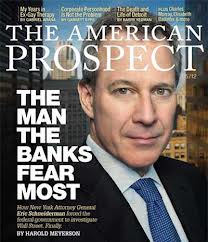 Brokerdealer.com blog update courtesy of Kevin Dugan’s article from 9 January in the New York Post.
Brokerdealer.com blog update courtesy of Kevin Dugan’s article from 9 January in the New York Post.
With record fines this year, brokerdealers are preparing to receive lower than average bonuses from their bosses.
Wall Street might have to settle for the second-best caviar this year.
After a year of record fines, sluggish trading and low interest rates, bankers hoping for richer payouts should prepare to be disappointed when bonus season gets underway next week.
By most estimates, the pool of money set aside for Wall Street workers is expected to be flat with the previous year, when the industry took home $16.7 billion, or an average of $164,530 per person.
Last year, big banks were slammed by billions in fines and penalties — Bank of America paid the largest fine ever for a single company, $16.7 billion — for offenses ranging from toxic mortgage securities to money laundering to tax evasion.
“The fines have come to roost,” said Michael Karp, CEO and co-founder of headhunting firm Options Group. “The bonus pool and compensation are the most vulnerable for banks to make up the shortfall.”
While the overall bonus pool is expected to be flat, there will be gains in some better-performing business areas. Investment bankers, private wealth managers and securitized product traders could see bonuses rise by more than 10 percent, according to a research report from Johnson Associates.
That will be offset by declines for credit and stock traders, the report said.
Layoffs across Wall Street should keep individual bonuses from sliding too much for those who still have a job, even for those working in areas with smaller bonus pools, Karp said.
Wall Street had shed 2,600 jobs through October of last year, according to New York State Comptroller Thomas DiNapoli.
Morgan Stanley is set to be the first bank to announce bonuses, on Jan. 15, sources said. The bank is expected to have some of the biggest payouts because of its focus on wealth management, which has exploded as wealthier clients give banks more money to manage.
Citigroup and Goldman Sachs are expected to announce bonuses the following day. Citi’s traders will see their bonuses slashed by 5 percent to 10 percent after a weak year, said a person familiar with the company’s plans. That’s worse than earlier estimates that had the bonus pool level with the previous year.
Goldman’s investment bankers could see some of the fattest payouts this year, as the firm pulled in the most business during the busiest M&A year since the financial crisis, according to Bloomberg data.
JPMorgan Chase is expected to announce bonuses during the last week of January, while European-based banks typically tell their employees in February and March.
Morgan Stanley, Citi, and JPMorgan declined to comment. Goldman didn’t return a call seeking comment.



